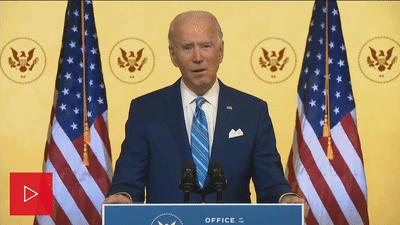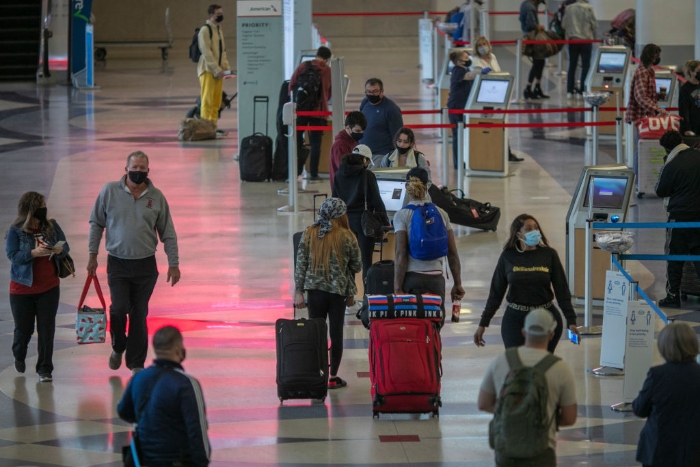UNDER CONSTRUCTION - MOVED TO MIDDLEBORO REVIEW AND SO ON https://middlebororeviewandsoon.blogspot.com/
Wednesday, November 25, 2020
One sunny day in January 2021.....
RSN: FOCUS: Donald Trump Might Want to Think Twice Before Trying to Pardon Himself
We’re Behind: We Need a Donations Rally!
We are down but not out. We need to make a comeback. Who can step up for RSN!
Marc Ash
Founder, Reader Supported News
If you would prefer to send a check:
Reader Supported News
PO Box 2043
Citrus Hts
CA 95611
It's Live on the HomePage Now:
Reader Supported News
FOCUS: Donald Trump Might Want to Think Twice Before Trying to Pardon Himself
Frank Bowman, Slate
Bowman writes: "Self-pardons are plainly unconstitutional."
 he 2020 election results are in. Joseph R. Biden, Jr. is the President-Elect of the United States of America. Sometime before January 20, 2021, Donald Trump will recognize the inevitable (even if he may never publicly admit it) and prepare to leave the White House. Given that his tenure in office has been plagued by numerous allegations of private and official misconduct, close observers anticipate that he might try to shield himself, his family, and associates from federal prosecution by liberal use of the pardon power, possibly including issuing a pardon to himself. In anticipation that this moment might arrive, I spent the last few months conducting a comprehensive historical, legal, and political examination of the president’s pardon power. In the forthcoming scholarly article laying out my findings, I conclude (among other things) that, although the question has never been tested, a president may not constitutionally pardon himself. Here’s why.
he 2020 election results are in. Joseph R. Biden, Jr. is the President-Elect of the United States of America. Sometime before January 20, 2021, Donald Trump will recognize the inevitable (even if he may never publicly admit it) and prepare to leave the White House. Given that his tenure in office has been plagued by numerous allegations of private and official misconduct, close observers anticipate that he might try to shield himself, his family, and associates from federal prosecution by liberal use of the pardon power, possibly including issuing a pardon to himself. In anticipation that this moment might arrive, I spent the last few months conducting a comprehensive historical, legal, and political examination of the president’s pardon power. In the forthcoming scholarly article laying out my findings, I conclude (among other things) that, although the question has never been tested, a president may not constitutionally pardon himself. Here’s why.
The idea that President Trump would try to pardon himself is hardly fanciful. Back in 2018, when the Mueller investigation was nearing its end, an apprehensive Trump declared, “As has been stated by numerous legal scholars, I have an absolute right to pardon myself….” The claim of scholarly support was not a complete invention. A few respectable figures have concluded that such an act would be constitutionally permissible. I think they are wrong. Indeed, a presidential self-pardon is antithetical to the language and structure of the Constitution, contrary to the evident intentions of the Founders, and a very real danger to republican government.
All of the arguments favoring a self-pardon rest heavily on the apparently open-ended text of the Constitution’s pardon clause, which reads: “The President … shall have power to grant reprieves and pardons for offenses against the United States, except in cases of impeachment.” Regardless of any attendant bells and whistles, the pro-self-pardon arguments boil down to the assertion that the words of the clause grant power without limit, and because the words do not expressly say that the President can’t pardon himself, then the opposite must be true — he can.
But even if we were forced to interpret the pardon clause using only the words in the text, those words contain multiple limits. Linguistically, the word “offenses” in the phrase “offenses against the United States” might mean any sort of injury to the country, or at least any sort of violation of the laws of the country, whether civil or criminal. But the Anglo-American history and practice of executive clemency were understood from the beginning to limit “offenses” in this context to crimes. Similarly, the phrase “against the United States” could be read to refer to the country as a whole or any of its constituent states. But from the outset, the pardon clause has been interpreted to cover only federal and not state crimes.
The phrase “grant pardons” contains the same sort of implicit, but well-understood, limitation. Both the etymology of the word “pardon” and our ordinary usage of it necessarily imply two persons. The Oxford English Dictionary explains that the English word “pardon” as both a noun and a verb is a borrowing from the French language and derives from two Latin roots: per, meaning “by,” and donum, a gift, or dōnāre, meaning to make a donation or gift. Thus, a pardon is a type of gift, and to pardon is to give such a gift. The act of gift-giving requires both a giver and a recipient. Although we sometimes loosely speak of giving ourselves a gift, in the sense of permitting ourselves an indulgence of some sort, the ordinary sense of the word gift, and thus of the act of pardon, requires two parties.
We scarcely need this etymological excavation to understand the point. In ordinary English, now and for centuries past, if I walk round a corner too quickly and collide with you, I say, “Pardon me,” or, if I am feeling a bit more formal, “I beg your pardon.” This formula (which is very old) acknowledges my fault, to be sure, but so would, “I’m sorry.” To beg the other party’s pardon goes further and asks both for her recognition of my acknowledgement of fault and for the gift of her forgiveness. Asking for pardon necessarily implies two parties and the judgment of one about the conduct of the other.
The word “grant” also implies two persons. In dictionaries known to be owned by the Framers, the verb form of grant is defined as, “To bestow something which cannot be claimed of right,” or “to … give, bestow.” The transactional, two-party character of the noun form of grant is emphasized by the existence of two derivative words—grantor (the person who makes a grant) and grantee (the person who receives it)—which were in common usage at the time of the founding. (All other instances of the word “grant” in the Constitution confirm this understanding.)
More importantly, throughout Anglo-American history from Magna Carta to the time of the Philadelphia Constitutional Convention, a pardon in law always involved two parties—an executive (or sometimes legislative) grantor and an individual grantee. I have been unable to discover a single instance in which a king, royal governor, or any similar official purported to pardon himself. That is important because both the ordinary usage of the words “grant” and “pardon,” and the universal, invariable, and centuries-old bilateral understanding of the concept of “granting a pardon,” would have informed the way the Framers understood the words they wrote into the Pardon Clause and rendered an exclusion for self-pardon superfluous.
To illustrate the point, imagine the Constitution said, “The President shall have the power to act as a kidney donor.” Those words empower the president to donate a kidney to anyone. Grammatically, they could be construed to permit the president to donate a kidney to himself. But no one would read them that way because that’s not the way kidney donation works. It requires two people—a donor and a recipient. That being so, no sensible person would write the Kidney Donation Clause to say: “The President shall have the power to act as a kidney donor, but may not donate his kidney to himself.” For the Framers, to speak of granting a pardon was necessarily to speak of one person judging and remitting the punishment of another. No explicit exclusion of self-pardon was required because the universal understanding of what it meant to grant a pardon self-evidently excluded such a possibility.
Even more importantly, it is not the language of the Pardon Clause alone, but how the pardon power fits into the Framers’ design of the presidency and the Constitution’s structural limitations on presidential power that should conclusively rule out a self-pardon.
Pardons are not an American invention. Rather, the Framers inherited an English legal tradition of executive clemency rooted in the ancient idea that the will of the king was the source of law, and thus, with a pardon, the king could release a subject from the law’s rigors as an act of royal grace. A corollary of this principle was that the king, as the source of law, was not personally subordinate to law, and thus was immune from either civil or criminal judgments by the courts.
The Framers considered, but explicitly rejected, proposals for an American king. The American constitutional structure was purpose-built with no monarch, and constructed on a theory of separation of powers between an elected executive, elected legislature, and appointed judiciary, combined with interbranch checks and balances. In the Framers’ system, the elected president has no ancestral claim that law is rooted in his will, and thus has neither an inherent right to issue pardons to others nor an inborn personal immunity from the ordinary operation of the law. In the American constitutional order, the presidency is a creation of law, its powers are specified by law, and each temporary occupant of the office is subject to the law. If we knew nothing more about the Constitution and the presidency than this, it would be sufficient to reject the idea of a self-pardon. If a president can pardon himself, he can, by an unreviewable exercise of his own will, render himself effectively immune from the operation of national law. That kind of immunity was a critical attribute of kingship, and it is quite plain that the Framers intended no American king.
Precisely because they were determined that the office of president not be a kingship, the Framers rejected the idea of a president-for-life and opted instead for a president elected to set terms of four years. They also worried that even an elected president could become corrupt or tyrannical, and they rejected the argument that elections alone would be a sufficient remedy in such a case. Therefore, they added two other protections against an egregious presidential malefactor.
First, the Framers provided for removal by impeachment. Impeachment was another inheritance from Great Britain, but American impeachment differs in critical ways from its British ancestor. Parliament could not impeach the monarch, only royal ministers, judges, and lesser fry. American impeachment was consciously designed for removal of a misbehaving chief executive. And to make sure that a president cannot nullify an impeachment threat with a pardon, the Constitution expressly excludes impeachment cases from the pardon power.
Second, the Framers were well aware that British impeachment was a hybrid political and criminal action in which Parliament could impose characteristically criminal penalties, including imprisonment and death. The Framers wrote our impeachment mechanism to be exclusively political by limiting the consequences of conviction to removal and disqualification. But—and this is critical—they expressly provided that additional penalties might be exacted in separate proceeding before ordinary courts. Article I, Section 3, declares:
Judgment in Cases of Impeachment shall not extend further than to removal from Office, and disqualification to hold and enjoy any Office of honor, Trust or Profit under the United States: but the Party convicted shall nevertheless be liable and subject to Indictment, Trial, Judgement and Punishment, according to Law.
In short, the Constitution says that Congress may not impose criminal penalties on a president, but the president is nonetheless subject to federal criminal prosecution through the ordinary courts. To my mind, this provision alone is dispositive of the self-pardon question. As a matter of original intention, the implicit threat in Article I of criminal court action against a crooked or tyrannical president would be a nullity if the Framers entertained any notion that a president could pardon himself. Indeed, we have very good evidence that they saw the threat of prosecution as an important constraint on presidential misconduct and never imagined a president could pardon himself out of that threat.
Both during and after the Constitutional Convention, Edmund Randolph, George Mason, and others complained that the pardon language was too broad because it permitted a pardon even for treason, and therefore, as Mason said, it “may be sometimes exercised to screen from punishment those whom [the President] had secretly instigated to commit the crime, and thereby prevent a discovery of his own guilt.” James Iredell, one of the first justices of the U.S. Supreme Court, responded to Mason, saying, “The probability of the President of the United States committing an act of treason against his country is very slight …. Such a thing is however possible, and accordingly he is not exempt from a trial if he should be guilty or supposed guilty, of that or any other offense.” Notice that both Mason’s complaint and Iredell’s response assume no self-pardon is possible. If it were, the president would not need to pardon others to prevent either his own detection or any subsequent prosecution. He could simply pardon himself out of liability for any crime alleged by others.
But far more important than what the Framers thought is how the availability of self-pardon would affect our contemporary constitutional regime for deterring and redressing presidential crime. Remember, there are only three constitutional mechanisms for dealing with grave presidential misconduct: quadrennial elections, impeachment, and criminal prosecution. In 1788, the Constitution placed no limit on the number of presidential terms. The Founders may have imagined that presidents would keep running indefinitely and would continue to be constrained by fear of the offending the electorate. But at least since 1951, when the Twenty-Second Amendment limiting presidents to two terms was ratified, all second-term presidents have known they will never face voters again. So, for them at least, that constraint is gone. And, as our current circumstances illustrate, a first-term incumbent president who loses a bid for re-election retains the pardon power for two-and-one-half months during which the fear of electoral backlash has been rendered meaningless.
I suspect the Framers imagined impeachment would prove a more meaningful check on presidents than history has shown it to be. In over 230 years, one president, Richard Nixon, left office due to the near-certainty that he would be both impeached and convicted. Only three presidents—Andrew Johnson, Bill Clinton, and Donald Trump—have actually been impeached. All were acquitted. The acquittals of both Presidents Clinton and Trump demonstrate that so long as a president can hold the loyalty of a mere thirty-four senators of his own party, conviction is impossible. And Senator Mitt Romney, by casting the only impeachment vote in American history against a president of his own party, reminded us of how easy it is in an era of extreme two-party polarization for a president to hold that line. To put it in terms the Founders might have used, the power of “faction” has all but erased the legislative weapon of impeachment.
Which leaves the criminal law. So long as the Justice Department maintains the position expressed in memoranda of the Office of Legal Counsel that a sitting president may not be criminally prosecuted, a president will be, practically if perhaps not constitutionally, immune from federal prosecution while in office. If a departing president can issue himself a pardon for all he has done before, then a president really is a creature above the national law, or at least the most important and most powerfully deterrent portions of that law. He could loot the Treasury, bribe judges, steal elections, commit treason itself, and be at no legal risk for any of it. Such a creature would no longer be the president of a free republic, but a dictator in all but name.
So far as I know, in all of Anglo-American history, no monarch, royal governor, president, or other executive officer has tried to pardon himself. The reason, I think, is that the idea of a self-pardon is so antithetical to the constitutional structures of England and the United States, and to the purpose that executive pardon power serves in those structures, that no one has ever had the effrontery to try it. A president who tried to pardon himself would not be relying on some deep, if heretofore unappreciated, reservoir of constitutional authority. He would instead be trying to slither through a heretofore untried loophole. In the case of an ordinary criminal defendant, one might merely shrug at the audacity of the dodge. But a miscreant president is no ordinary malefactor. And permitting presidential self-pardons would not merely allow individual miscarriages of justice, but would erase a structural barrier to tyranny. I do not believe the Supreme Court would countenance that result.
We're being outspent
With control of the Senate on the line, we knew these two runoff races in Georgia would get expensive. As of yesterday, the GOP is spending over $168 million in ads here! They are outspending us on ads by $67 MILLION!! My opponent, David Perdue, has no positive vision, no plans to contain this pandemic, and no concern for the economic suffering of the people here in Georgia. Thanks for being with me,
|
Stacey Abrams prepares for the GA Senate runoffs: Let’s get it done
| ||||||||
| ||||||||
|
POLITICO NIGHTLY: Reality check on Biden’s national security team
|
|
-
04 April 23 Live on the homepage now! Reader Supported News Dahlia Lithwick | Let Donald Trump Cry It Out Dahlia Lithwick, Slate Lithwic...
-
A Democrat in the Wilderness Wow! That must have really got him mad!!! I Love it! ...
-
Israel on the Brink as Ultra-Orthodox Exemption from Military Service is Set to End Oakland, Ca. (Special to Informed Comment; Featured) –...








